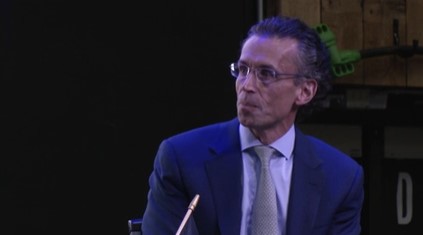SIOUX FALLS, S.D. (KELO/AP) — South Dakota State University economist Joe Santos, who spoke in Sioux Falls Monday at a Rotary Club event, says prices in the short term may very well increase thanks to tariffs.
“There’s a really good chance that some of that tax, if you will, will be passed through in the form of higher prices to consumers,” Santos said. “It’s not the only place it needs to go, but it needs to go somewhere. It either gets passed through in the form of a higher price to a consumer, the importer could, as it were, eat the tax or the firm that exports to the United States, I suppose, could lower their price so that we don’t bear the burden as much. But it’s got to go somewhere.”
SD Lawmakers advocate for transparent spending
A tariff is a tax on imports. U.S. President Donald Trump has made tariffs a central tenet of his economic strategy.
“The tariffs will make it so that they want to come back,” Trump said March 24. “That’s why they’re coming back. I think they’re coming back because of the election that took place on November 5th and because of the fact that they have to come back because the tariffs are forcing them to come back. And remember, there are no tariffs if you build here.”
“If we go on the assumption that trade should be distributed in such a way that the production should be happening domestically but it’s not, so there’s something wrong, so we shift it to a, to domestic production, to do that as a practical matter is going to require a capital expenditure,” Santos said Monday.
Such as, for example, hiring more staff or building a factory.
“That’s a long-term investment,” Santos said. “You’ve got to be very certain of the economic and policy environments in which you’re operating in order to engage in that sort of investment. So there’s a sort of a stage two to that thought experiment, and we just don’t know if businesses will respond by jumping into these domestic markets if they reason that uncertainty still prevails.”
Trump is set to announce additional tariffs Wednesday.







